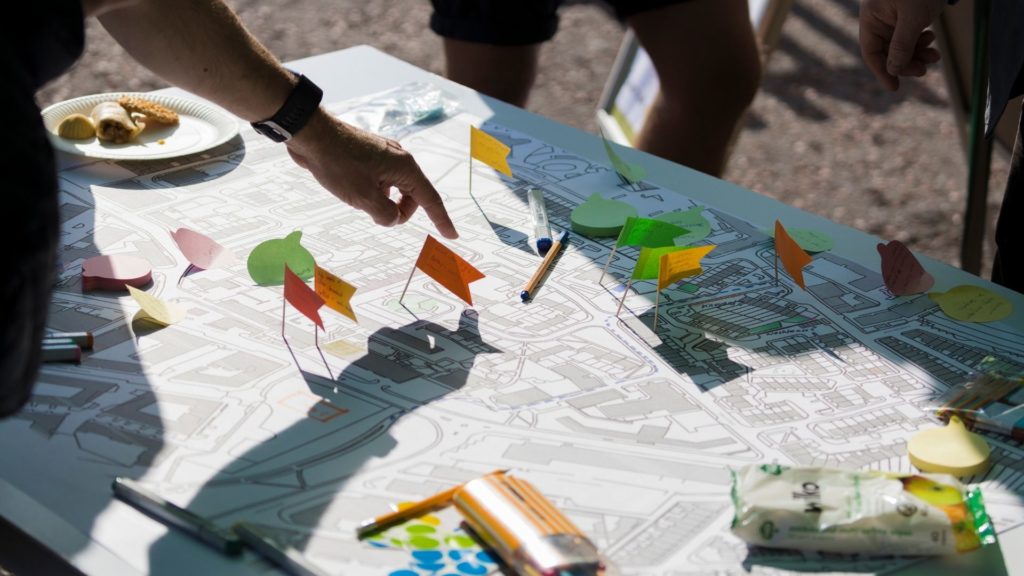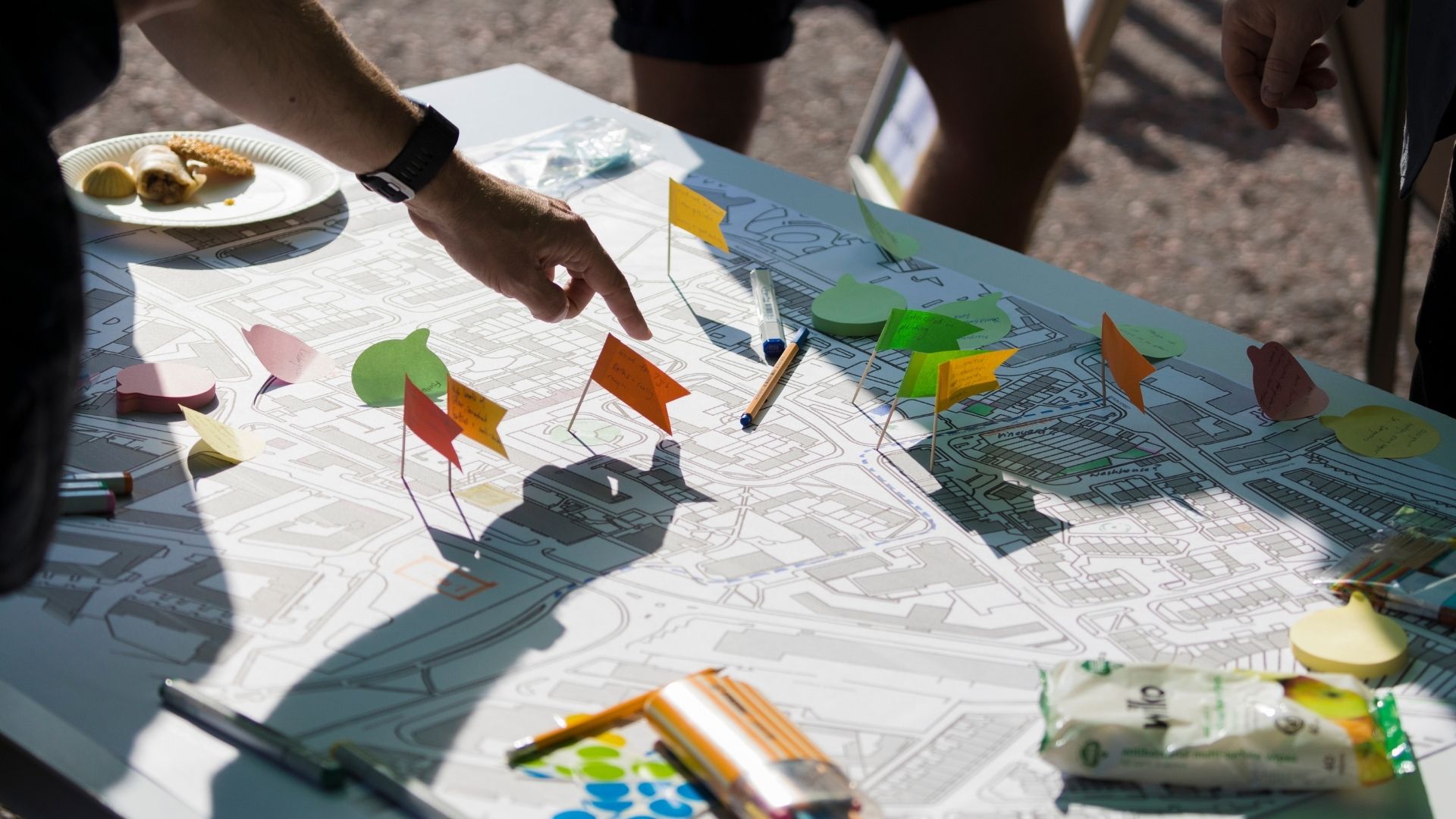World Car Free day was on the 22nd September and encourages motorists around the world to give up their vehicles for a day. The benefits of this include less traffic congestion, a greener environment and reduced fuel demands. Organised by Dwellbeing and Shieldfield Art Works and supported by volunteers and organisations around our local Shieldfield area, a Car Free Day on Sunday 26th September was created as a local community event. This event aimed to create more space for neighbourhood gatherings, safer streets, and the promotion of local transport options. Our own Graduate Planner Sophie took part in volunteering at this event, which was by all accounts a great success!

Local residents, businesses and volunteers came together to turn the closed street into a thriving community space. Planters were built and used to close off the road, local businesses donated a variety of food, and local residents also cooked for the event. The closure of the road also enabled children to play without the danger of traffic – a key concern in Shieldfield for many years.
Taking part in the organisation and hosting of the Car Free Day in Shieldfield was extremely fulfilling, not only for gaining experience in this approach to planning but also emotionally. I was able to see how our hard work as volunteers allowed us to create an approachable safe and engaging space for locals to meet, greet and share their views and ideas with us. It was particularly heart warming to see the amount of support we had from donations and local charities.The ethos of this movement is very important for the future of inner-city neighbourhoods, and as a planner I truly believe recognition needs to be given to this approach of creating healthy and inclusive spaces to work within the public interest and to create a sustainable future.Sophie, Graduate Planner at ethical partnership
The benefits of car free days, often seen through Low Traffic Neighbourhoods (LTNs), have already been acknowledged and Newcastle Council are already trialling the concept around the city. Areas include Salters Bridge on Hollywood Avenue, and Argle Street Bridge along Ouseburn. More areas around Newcastle are set to be turned into LTNs after fresh plans were signed off by the council. Newcastle City Council has not yet said whether its first LTNs will be made permanent fixtures, however we hope that local involvement organised by residents – as seen with the Shieldfield Car Free Day – will highlight to the council the demand and need for such areas to become permanent fixtures.
It is estimated that around 4,900 daily journeys on foot and 1,350 daily journeys by bike have been recorded across five areas where low traffic neighbourhoods are currently being trialled within Newcastle. People are being invited to put forward suggestions for low traffic neighbourhoods where they live, which could see more areas pedestrianised.
One of the main factors that prevents people from letting their children walk or cycle to school is concerns about road safety and traffic levels. This results in more people choosing to drive, which also affects other people’s journeys – not just families on their way to school – and results in higher levels of pollution. We need to do things differently and that means changing the way we use our streets by reducing traffic levels and making it possible for people to choose other ways of getting around the area they live in.
Cllr Arlene Ainsley, Cabinet Member for Transport and Air Quality at Newcastle City Council.
At ethical partnership our work is guided by our values, where we place a strong emphasis on the needs of the local community. We constantly engage with all stakeholders to ensure that our projects provide the best possible outcome for the local community, and welcome the Car Free Day at Shieldfield with open arms!
As an environmentally-conscious organisation, we strive to ensure that our projects consider the biodiversity of the local area. Similarly, we try to maximise green spaces and understand the major role it has on mental health. For more information about the work we do, contact us and find out how we can help with your next planning project.

